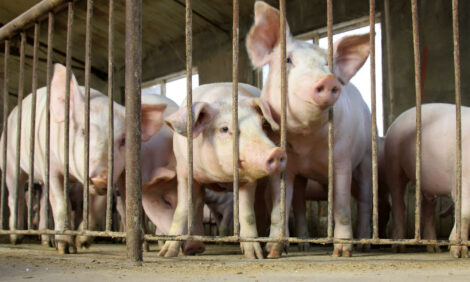



New approach to vaccine development could successfully eliminate other pathogens
A researcher with the Western College of Veterinary Medicine is confident a new approach to dealing with bacterial diarrhoea in pigs can be applied to other pathogens.To assist in vaccine development researchers with the Western College of Veterinary Medicine have isolated two specific Brachyspira hyodysenteriae proteins that appear to be responsible for diarrhoea in pigs.
Dr Matt Loewen, an Associate Professor in Veterinary Medical Biosciences with the University of Saskatchewan's Western College of Veterinary Medicine, says scientists returned to first principles and looked specifically at what the bacteria produces and how the pig reacts to it to cause diarrhoea.
"We hope that these two proteins will provide protection if they are strongly immunogenic and that they are a good antigen, that the pig can take those antigens and produce a response to them that prevents the bacteria from functioning," said Dr Loewen, speaking to Farmscape.
"This concept of going back to first principles of what's happening in the pig and what's happening in the bacteria, and knowing the very specific proteins and processes that are involved, and then targeting very specific things in the bacteria to produce an immune response, has been successful in other diseases, in particular for cholera in human vaccines.
"My guess would be, if this process works, we could apply it to other pathogens that are problematic to pigs such as other E. coli diarrhoeas and Salmonella and even some of the viral diarrhoeas as well.
"If it works then we can probably move this to another pathogen.
"That being said, the time frames to do this type of work are huge.
"You're talking a decade or more to go back to very first principles, figure out what's happening and actually find the specific proteins that you're after."
Dr Loewen acknowledges, because of the time lines involved, this process is unlikely to completely replace the commonly used methods of vaccine development.







